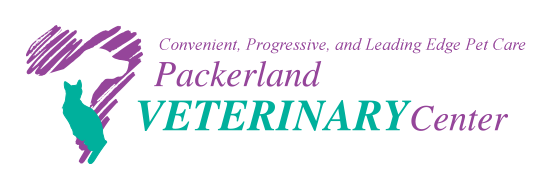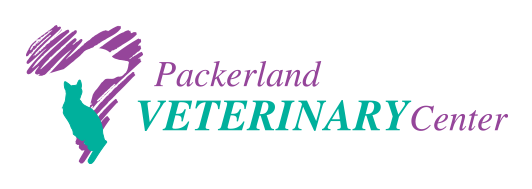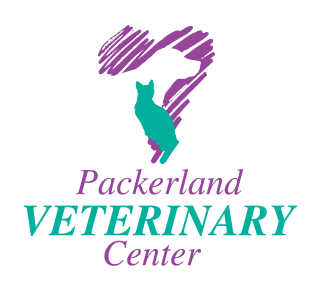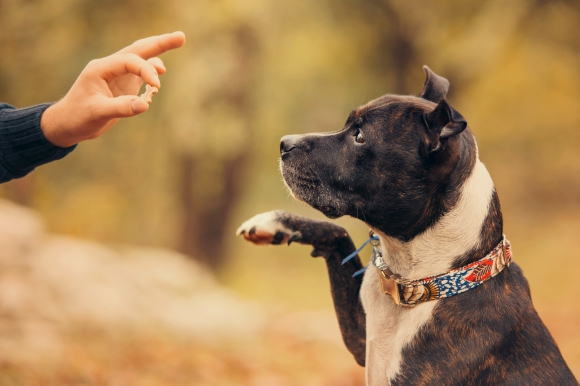


ASK US
Puppy Training Tips
Puppy training is very important for setting the stage for a lifetime of success with your new family member. An old dog can always learn new tricks, but it is easiest if you start early and be consistent from the beginning, before they learn bad habits. The more work you put into your puppy, the better the adult dog you will be living with for a lifetime. Unfortunately training isn’t always as easy as people would like. It requires time, commitment from everyone in the household, repetition and consistency.
The first thing to remember with training dogs is that they live in the moment. This means you need to be present to reward the pup the second they perform the task you desire. When you tell them to sit, you should give the treat the moment their tail hits the floor. When you consistently do this, it is much easier for them to make the association between the treat, the word sit and the behavior. This is particularly important as the tasks get more difficult. This is also the basis behind clicker training. It is easier to perform a quick “click” the moment the pet performs a task and over time this sound indicates to them they completed the task correctly. Some people find it helpful to use a short cue word such as “yes” or “good” rather than a clicker. A click or a cue word allows you to be a little slower with the treat, but because of the immediate and consistent response, the pet will have a better understanding of what is being asked of them.
word such as “yes” or “good” rather than a clicker. A click or a cue word allows you to be a little slower with the treat, but because of the immediate and consistent response, the pet will have a better understanding of what is being asked of them.
Living in the moment also applies to potty training. You need to be present outside when they go potty so you can reward the moment they go. If you give them a treat when they come in the house from pottying, they have no idea it should be associated with the fact that they went potty just a short time ago. On the same note, if you find a potty spot in the house after the action has taken place, there is no need to punish the dog – they won’t know what you are mad about. Just clean it up well and move on. The most important thing for quick potty training is to not allow the dog to make a mistake in the house or to be present to interrupt them if they do. A quick “no”, scooping them up and taking them outside will help them understand their mistake. If they finish outside, throw a party and reward them for it! Each time they potty in the house without catching them in the act, the behavior gets reinforced so it is SUPER important to watch them diligently or kennel them when you cannot to prevent mistakes.
The next important thing to remember is that dogs don’t respond to negative training. Dogs perform behaviors and they do not understand why you are mad about some of them over others. If your puppy is doing something you do not like, you cannot teach them NOT to do it – they do not understand this concept. You must replace an undesirable behavior with a desirable one in order for them to be successful. If they are jumping on people when they come in the door, you cannot teach them not to jump. Instead, you must work with them on a behavior you would rather have them perform at that time such as a sit/stay on a mat nearby until they are called. This takes time and effort, but will be more successful than yelling at them or pushing them down as even negative attention inadvertently reinforces the undesirable behavior they are performing.
Dogs need consistency and reinforcement. Make your puppy work for everything. Once they are successfully performing easy tasks for you, use them throughout the day before feeding, walking or during play. Many short sessions of training spread throughout the day will work better for short attention spans. Work up to more and more difficult tasks by building on what they already know. The cue word you are already using will help them understand these harder tasks faster.
Another important tip is reward value. When you are teaching something that is fairly easy such as sit, a basic treat will likely do. If you are teaching something more difficult such as potty training or leash walking, you may need a higher value reward such as cheese or hot dogs. Dogs don’t need whole treats to get the benefit – break larger treats into smaller pieces or use small training treats. Prepare small snack bags with a variety of small bits of treats and have them in your pocket or around the house for easy access throughout the day. For training your pup to walk, carry a small baggy of tiny bits of squeaky cheese or hot dogs that they don’t get at any other time and feed these tiny bits whenever they are loosely walking right next to you rather than pulling. Use a cue word as you do this such as “good” before you give the treat, to indicate they are doing something properly. Over time and with consistency, they will put together that when they walk loosely and nicely next to you they hear “good” and get an amazing treat and will begin to understand what you are asking of them.
These tips are just the basics to get you started on the road to success with your new pup. Puppy classes with a trainer that focuses on positive reinforcement are always recommended to help you build off of these ideas to get the best end result. Anyone can teach their dog to sit but a good trainer will have a whole new perspective to share that will enhance how you interact with your dog and teach them tasks that will help them be successful and happy as they age. We have some pretty amazing trainers in our area and we are always happy to give a recommendation. In the meantime remember while it might not be easy, with patience and consistency your new furry family member can become the perfect addition for a lifetime!



